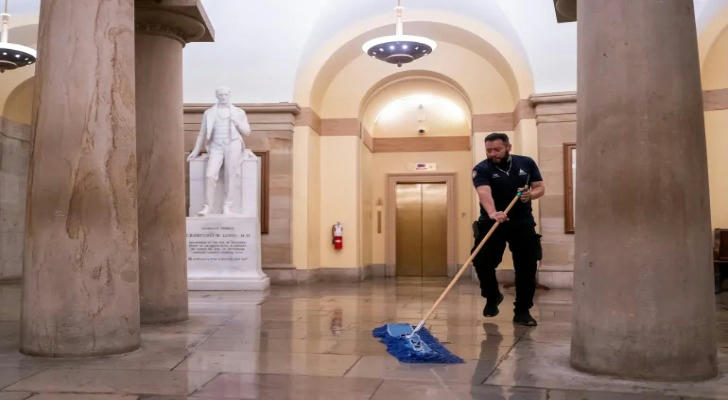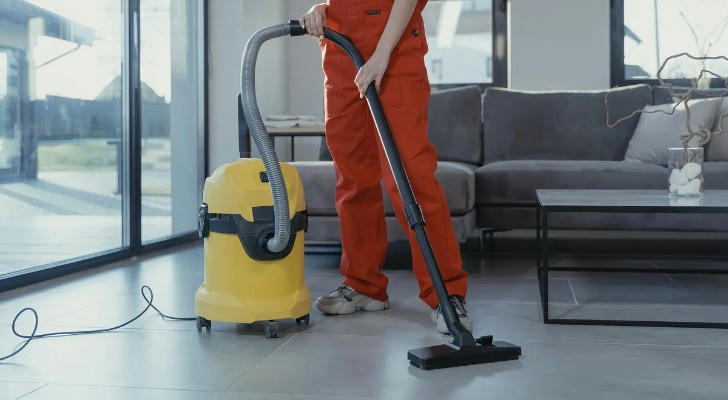Why Cleaning Jobs Matter More Than Ever in America
Every time you walk into a spotless hospital room, a freshly sanitized classroom, or a gleaming office lobby, you're experiencing the result of professional cleaning work. In the United States, the cleaning industry supports nearly 3.3 million jobs, according to the U.S. Bureau of Labor Statistics (BLS, 2024). And this number is growing.
1. Cleaning Jobs: The Hidden Backbone of Daily Lives
While often overlooked, cleaning professionals play a crucial role in public health, safety, and comfort. Their work became especially visible during the COVID-19 pandemic, A reminder that cleanliness isn’t just about aesthetics—it’s about health and survival.

Despite this, many people still see cleaning jobs as low-skill or short-term roles. In truth, professional cleaning requires training, technical knowledge, and discipline, especially in specialized environments like hospitals, laboratories, and commercial buildings.
2. Types of Cleaning Jobs Available
Not all cleaning jobs are the same. Depending on your preferences, physical ability, and work environment, you can choose from several paths:
Residential Cleaning: These jobs focus on cleaning private homes or apartments. Tasks usually include dusting, mopping, vacuuming, kitchen and bathroom cleaning, and sometimes laundry or organizing.Pros: Regular clients, steady income, flexible hours.Great For:People who enjoy a quieter, more personal work setting.
Commercial Cleaning: This involves cleaning offices, retail stores, and public buildings. Work is often done after hours or overnight to avoid disrupting business operations.Pros:Team-based work, larger contracts, higher-paying gigs.Great For:Night owls or those comfortable with physical labor.
Specialty or Deep Cleaning: Some companies offer services like post-construction cleanup, move-in/move-out cleaning, or biohazard cleanup (such as hospitals or labs). These jobs require more skill or training but often come with better pay.Pros: Higher wages, unique skill development.Great For:People looking for specialized career growth.
Hotel or Hospitality Cleaning: Housekeepers and room attendants work in hotels or resorts, cleaning guest rooms, restocking supplies, and ensuring a high level of hygiene.Pros:Stable hours, team support, tips in some cases.Great For:Those who enjoy customer-focused environments.
3. What Does a Typical Cleaning Job Pay?
Typically, cleaners are paid between "$10 and $20 per hour", depending on the region and type of work. Some unionized or specialized positions can offer even more. While it may not sound glamorous, full-time cleaners can earn a decent income—especially when overtime or holiday pay is involved.
Many employers also provide "health benefits", "paid time off", and even "retirement plans" for long-term employees.
4. What Skills Do You Need to Get Hired?
Most cleaning jobs do "not require a college degree". In fact, many roles require no prior experience at all—just a good attitude and a willingness to learn.
Common qualifications include:
- Physical stamina (you’ll be on your feet!)
- Attention to detail
- Basic knowledge of cleaning supplies or equipment
- Time management skills
- Ability to follow safety guidelines
5. Why Cleaning Is a Smart Career Move
Here are a few reasons why many people are turning to cleaning jobs:
Steady Demand: Even during economic downturns, cleaning services are essential. People still need clean homes, and businesses must meet sanitation standards.
Low Barrier to Entry: You can start quickly—often with just an ID and a willingness to work. No expensive certifications required.
Career Growth: Many cleaners go on to become supervisors, team leads, or even start their own cleaning businesses. There’s room to grow if you’re motivated.
Work Independently: If you enjoy working without a boss constantly looking over your shoulder, cleaning might be a perfect fit. Many roles allow for independent, focused work.

6. Want to Start Working Soon?
Hundreds of companies across the U.S. are hiring cleaners right now. Many offer immediate openings, paid training, and even career development opportunities.
If you're looking for a stable, honest job with real growth potential, cleaning could be the perfect fit. It's not just about mops and vacuums—it’s about making spaces livable, safe, and welcoming.
Whether you're starting over, changing careers, or just need something flexible, cleaning jobs offer more than meets the eye.
- After all, when everything is clean, it’s easy to forget who made it that way.
- But without them, nothing else works.
7. How to Get Started
Update your resume: Even if you have no experience, highlight transferable skills like punctuality, reliability, and physical fitness.
Be ready to work flexible hours: Many cleaning jobs happen early mornings, evenings, or weekends.
Be professional during interviews: Dress neatly and show a positive attitude.
Apply through trusted platforms: Stick to reputable job boards or company websites to avoid scams.
